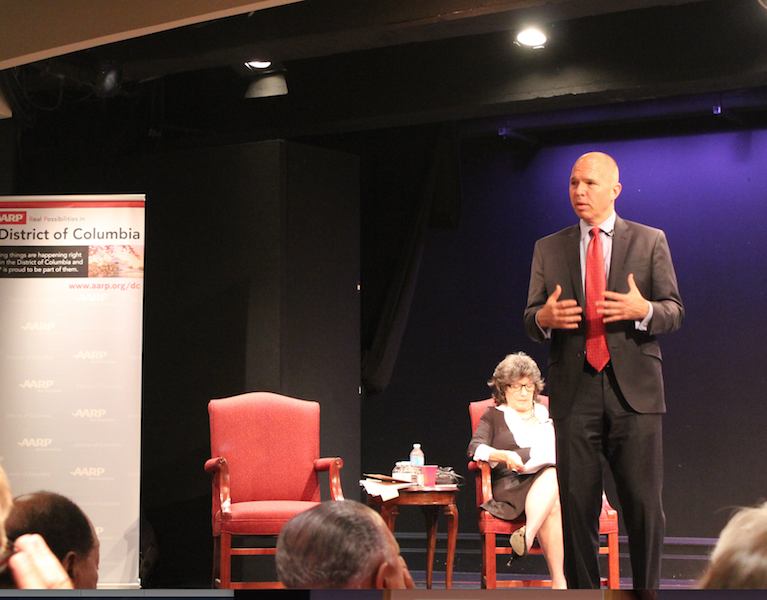By Aleesa MannHoward University News Service
Organic and vintage will be the key trends on display as models walk down the runway Friday, Feb. 27 at the first-ever VERDE Eco-Fashion show, where green is the new black.
Organic cotton promotes a healthier environment because it is grown without toxic chemicals. Vintage clothing that is worn rather than thrown away reduces the amount of waste bound for landfills. The Council for Textile Recycling estimates that buying vintage clothing leads to a reduction of 2.5 billion pounds of waste annually.
VERDE is a fashion show that not only promotes looking good, but doing good by promoting ways to be environmentally friendly, something Amal Bennett-Judge, president of Howard University College Democrats, encourages everyone to take seriously. “I’ve always been interested in the environment,” said Bennett-Judge, who has organized The Green Print, a series of programming to make Howard’s campus more sustainable.
“We’re trying to change our campus and communities, but also Congress,” she said. “Trends start not only from the bottom up, they also start from the top in order for us to make renovations and have progression.”
Yet, Bennett-Judge has noticed something troublesome about her peers; they are slow catching on the eco-friendly movement. She wants to change that and make Howard’s campus more environmentally sustainable.
To accomplish that feat, Bennett-Judge is coupling environmental issues with something she feels is popular with Howard students – fashion. This year the College Democrats are partnering with other organizations, including Engineers Without Borders and Howard University Environmental Society to host VERDE Eco-Fashion Show, an eco-friendly fashion show being held as part of this year’s Power Shift conference.
Power Shift is a four-day conference (Feb. 27 to- Mar. 2) put on by the Energy Action Coalition that will bring together young people from across the nation who aim to address elected officials on issues of the economy, climate and clean energy policies. The fashion show will be held Feb. 27 at 10:30 p.m. in the Washington Convention Center.
Alexandria McBride, president of Engineers Without Borders (EWB), joined in to sponsor the event, which she feels aligns with her organizations goals.
“Since our inception two years ago we’ve tried to be the leaders on campus in educating students on how to be environmentally friendly,” said McBride, senior civil engineering major. “We heard about Amal and what she’s trying to do, and she is bringing the message that we’re trying to spread to Howard students.”
EWB has hosted and participated in several events promoting environmental awareness, including creating their own environmental awareness campaign, E2, holding a screening of the film “An Inconvenient Truth” and participating in Green Bison, an event to educate students on going green.
The VERDE fashion show puts a new spin on an old issue.
“We can’t use 20th century solutions to solve 21st century problems,” said Bennett-Judge. “The environmental crisis is something that’s going to affect our generation the most. I feel like African Americans, we tend to be on the back burner instead of the forefront and I feel it’s important that students understand the importance of having sustainable environmental policies nationally, as well as globally.”
In “A Climate of Change: African Americans, Global Warming, and a Just Climate Policy of the U.S.,” the Environmental Justice and Climate Change Initiative studied the impact of climate change on African Americans.
The study found that African Americans, who compose 13 percent of the U.S. population, emit nearly 20 percent less greenhouse gases than non-Hispanic whites per capita.
“Though far less responsible for climate change, African Americans are significantly more vulnerable to its effects than non-Hispanic whites,” the study found.
Global warming is expected to increase the extremity of heat waves and other heat events. African Americans suffer heat death at a rate 150 – 200 percent higher than the rate of non-Hispanic whites.
Climate change also impacts energy costs. African Americans spend 30 percent more of their income on energy than non-Hispanic whites.
“One thing that some people don’t know and might forget is that African American communities and low-income communities are the ones that are already dealing with environmental hazards,” said Kari Fulton, national campus campaign coordinator for the EJCC and co-chair of the agenda for this year’s Power Shift conference.
“The future of black history depends on us claiming and paying attention to the future green economy that is building up today,” said Fulton, a Howard graduate.

